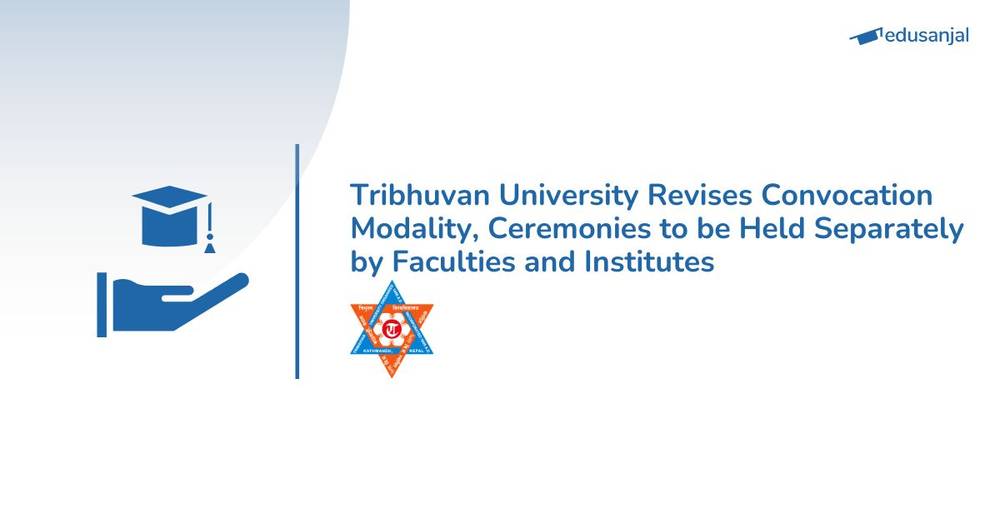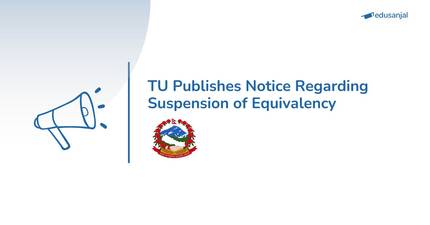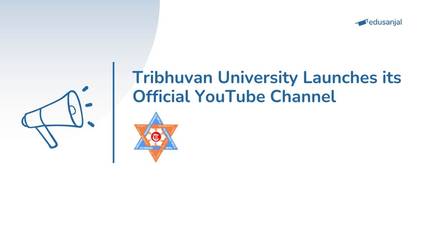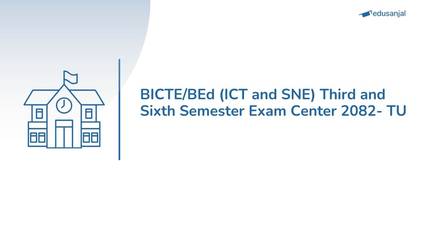Tribhuvan University (TU) has officially changed the modality of its convocation ceremonies. Moving away from large-scale, centralized events, TU will now conduct convocations separately for each faculty and institute.
This decision was made during a recent meeting of the university’s executive council held at the Prime Minister’s residence in Baluwatar. The change follows the chaotic experience during the last convocation held on 13th Poush at Dasharath Stadium, where 14,308 students were conferred degrees, leading to management issues, traffic congestion, and security challenges.
Registrar Prof. Dr. Kedar Prasad Rijal stated that this move is aimed at conducting the ceremonies in a more manageable and organized way. According to him, the previous model created difficulties in ensuring safety and smooth execution. Going forward, each faculty and institute will hold its convocation independently, within its own premises when feasible.
“Managing such a large event in a single day proved challenging. For example, engineering students can now hold their ceremony within their own compound, and law students on a separate day. The decision to hold separate ceremonies for each faculty and institute has been formally approved,” said Registrar Rijal.
However, TU plans to invite the Chancellor (the Prime Minister) to one of the ceremonies as a representative event. Other convocations may include special guests such as prominent figures associated with the respective disciplines or faculties. For instance, the Vice-Chancellor may attend the PhD-level convocation. Rijal added that conducting separate ceremonies is also a global trend.
The new modality will be implemented starting the fiscal year 2082/83 (2025/26). “We will issue directives to all faculties and institutes to conduct their convocations by mid-Poush,” he said.
Over 89,000 Students Received Transcripts
This year, a total of 89,191 students have received their academic transcripts from TU’s Examination Control Office in Balkhu. These students completed the necessary academic processes between 1 Asar 2081 and the end of Jestha 2082.
Of the total, 77,263 students (86.63 percent) graduated from various faculties, while 11,928 students (13.37 percent) graduated from constituent institutes. The Faculty of Management had the highest number of graduates with 43,610 students (48.90 percent), followed by the Faculty of Education with 16,467 students (18.46 percent), and the Faculty of Humanities and Social Sciences with 14,851 students (16.65 percent).
Other figures include:
- Faculty of Law: 2,335 students (2.62 percent)
- Institute of Science and Technology: 7,464 students (8.37 percent)
- Institute of Engineering: 1,463 students (1.64 percent)
- Institute of Medicine: 2,280 students (2.56 percent)
- Institute of Agriculture and Animal Science: 476 students (0.53 percent)
- Institute of Forestry: 245 students (0.27 percent)
Graduates by Program Level
- Bachelor’s Degree: 70,586 students
- Postgraduate Diploma in Science (PGDS): 132 students
- Master’s Degree: 17,882 students
- MPhil: 423 students
- PhD, DM, and MCh: 168 students
These graduates will be eligible to participate in the upcoming convocation ceremonies. However, students must complete the necessary form submission to attend.
Timely Results Boost Transcript Receivers
Registrar Rijal credited the rise in transcript requests to TU’s adherence to its academic calendar and improved examination management. He claimed that the university successfully published results within 100 days of exam completion.
Rijal further stated that significant reforms have been made to enhance the efficiency of the examination system. Ten types of services are now available online through TU’s regional examination offices. These include registration forms, exam applications, transcript requests, provisional and original certificates, re-totaling applications, name and registration corrections, recommendation letters, and certification services.
According to Rijal, the university is strictly enforcing the academic calendar to ensure timely teaching, examinations, and publication of results.










